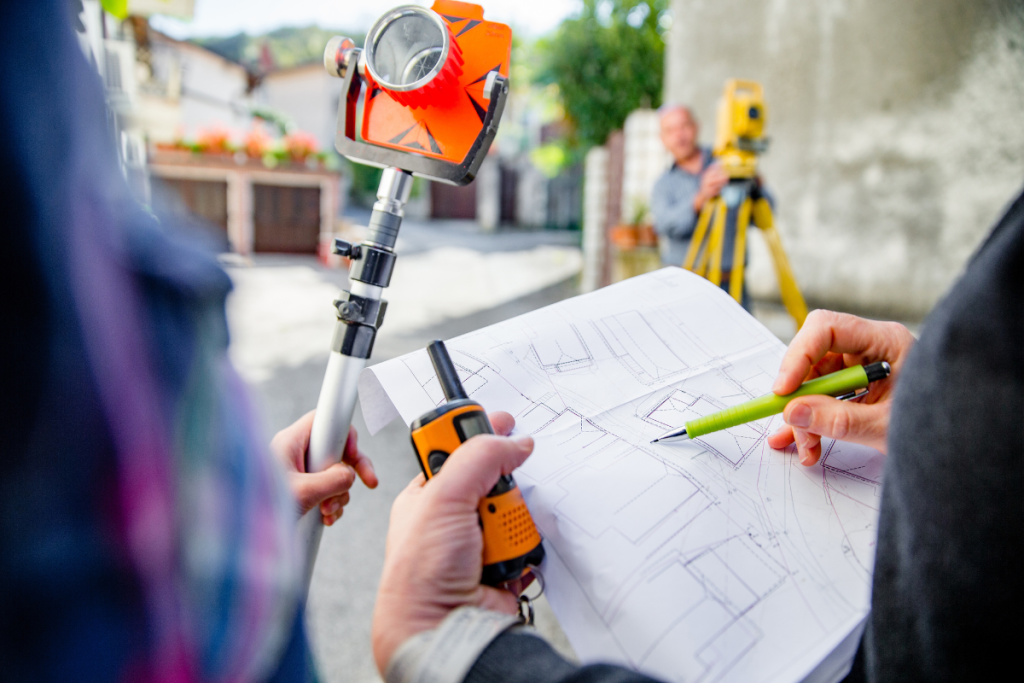- Due diligence is a preliminary analysis, research, and investigation process applied in complex financial and real estate transactions.
- Real estate due diligence consists of three major phases: preliminary, operational, and final report drafting.
- Current condition, maintenance, urban planning status, cadastral data, legal verification: let’s explore the key investigative elements to be considered.
- Who can perform a due diligence? The real estate appraiser is the professional responsible for carrying out this procedure, which is one of the many advantages of this process.
A 360-degree perspective
When approaching a real estate transaction, whether buying or selling, it is essential to have a clear understanding of all factors involved. While it may seem obvious, it is not always easy to access all the necessary information in a transparent and direct manner for an accurate evaluation. This is especially true for complex transactions that require a comprehensive perspective to understand the advantages and disadvantages at stake.
Every aspect of due diligence is relevant to the value of the property to be acquired or disposed of. Two examples might be the surveying, during a legal due diligence, of modal donations, which are frequent in properties owned by the Vatican – Holy See or by Religious Congregations and Ecclesiastical Bodies. Or during technical due diligence, which often requires a survey of the property, perhaps with the use of laser scan technology, with restitution in .dwg files for autocad, the discovery of volumes, even of significant size, never authorized that sometimes can be legalized, or sometimes must be demolished. Each of these aspects will have an impact on the value and commerciability or possibility of renting the property complex, as well as on the possibility of undertaking renovation work on the property, whose building permits require full legitimacy of the ante operam state. Carrying out a full due diligence on one’s real estate assets is a prudent and necessary practice even if one has no intention of selling it as some procedures for regularization, especially in Italy, are very complex and require, due to bureaucracy, very long time frames. This aspect becomes even more critical for properties located in Italy that are over 70 years old that are susceptible by law to a lien placed by the Ministry of Cultural Activities.
This is where the due diligence comes into play. The term “due diligence” literally means “required diligence,” aptly summarizing the value of this practice, which is increasingly applied in various fields, particularly in finance and real estate. Essentially, real estate due diligence is a detailed investigation into the condition and status of a property. It is a preliminary activity of analysis, research, and investigation at multiple levels. The objectives: to gather as much information and data as possible and define substantial and strategic aspects of the transaction.
What is a real estate due diligence: structure and checklist
The real estate due diligence has become a fundamental pillar of many complex transactions. When properly conducted, it can unlock incredible opportunities and minimize the risk of significant errors. A due diligence can be divided into two main categories:
- legal due diligence – aimed at verifying the various titles of ownership (provenance) of a real estate complex;
- technical due diligence – which in turn can be divided for simplicity into:
2.A administrative due diligence – urban planning and cadastral
2.B technical due diligence-plant, structural, etc.
The process is divided into three main phases: preliminary, operational, and final drafting.
• Preliminary phase: objectives and guidelines are defined, including execution timelines and periodic reports on the progress of the due diligence. A dedicated checklist helps summarize everything required to complete the operation effectively. This includes identifying all parties involved (buyer, seller, professionals, etc.), collecting the necessary documentation, conducting surveys on the current condition, and assessing maintenance needs.
• Operational phase: the appointed consultant gathers documentation from all relevant parties and proceeds with the analysis and processing of the collected data.
• Final report drafting: a document is prepared summarizing the investigation’s findings, highlighting strategic aspects, critical issues, and any areas lacking sufficient information. This document must be reviewed by the client before it becomes official to ensure there are no inconsistencies or unaddressed crucial aspects.
A multi-level investigation
The complexity of a real estate due diligence stems from the various types of investigations that must be conducted. This multi-level analysis, as previously mentioned, considers the technical characteristics of the property, as well as legal, urban planning, and construction aspects, including cadastral, structural, utility, and environmental factors. It must also provide details on the property’s economic value. Real estate due diligence can be categorized into different areas of action, including:
• evaluation of the current state of the property through geometric and photographic surveys, also utilizing BIM software and artificial intelligence.
• Inspection of the property’s maintenance status, including the efficiency of facilities, functionality of roofing, fixtures and masonry, water drainage system, condition of structures. This helps determine whether an extraordinary maintenance is required.
• Verification of urban planning compliance, including the presence of building permits, licenses, construction approvals, certificates of habitability, and any building amnesties. It also examines potential building code violations and existing constraints.
• Review of cadastral data and their consistency with the as built.
Another crucial step is the legal verification, which establishes the property’s ownership and identifies any mortgages or lease agreements, liens or otherwise encumbrances (e.g., easements) that may limit its usability or full availability.
The role of the Real Estate Appraiser and the added value of due diligence
Real estate due diligence falls within the expertise of the real estate appraiser. This professional is responsible for evaluating properties, land, and real estate assets in all their aspects. An appraiser must meet specific qualifications, such as at least three years of experience in the real estate sector, knowledge of property valuation and economics, and urban planning expertise. However, the most critical requirement is obtaining a certification that validates their competence. In this regard, relying on professionals is one of the key benefits of due diligence. It ensures a thorough, accurate, and secure approach to the most complex stages of a real estate transaction. However, the value of a well-executed due diligence process does not stop there. This process helps optimize property management and maintenance costs, enhances revenue potential through improvements or changes in use, and increases the overall profitability of the real estate investment. Ultimately, due diligence allows for informed and strategic decision-making in the real estate market, leading to successful long-term outcomes.
Hiring a R.I.C.S. qualified Member is always the best option.


